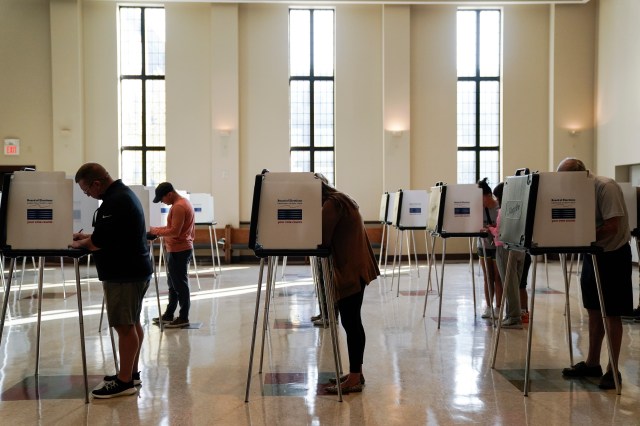Artificial Intelligence’s Impact on Election Misinformation
As the Texas primary early voting approaches, concerns about artificial intelligence’s involvement in spreading misinformation during elections have been on the rise. Recent incidents have underscored the potential misuse of AI technology in manipulating voter behavior and spreading false information.
Just a couple of weeks ago, reports surfaced regarding robocalls employing AI to mimic President Joe Biden’s voice, urging voters not to participate in the New Hampshire primary on Jan. 23. These calls, suspected to be an illicit tactic of voter suppression, have prompted an investigation by the state attorney general.
The implications of AI in the upcoming 2024 election have sparked debates in state legislatures nationwide, with proposals emerging to either prohibit or mandate disclosures for AI-generated election content.
Zelly Martin, a graduate research assistant at the University of Texas at Austin’s propaganda research lab, emphasized the urgent need for regulatory measures concerning AI following these misinformation campaigns. She stressed the importance of addressing these issues thoughtfully without succumbing to unwarranted alarmism about the technology’s advancements.
The Cybersecurity & Infrastructure Security Agency (CISA) released a comprehensive study outlining the various malevolent applications of generative AI. These range from fabricating deepfake videos featuring news anchors to creating fake online personas for phishing schemes in chatrooms.
Moreover, AI-generated imagery could be exploited to craft deceptive social media profiles that appear authentic and trustworthy, amplifying the dissemination of misinformation.
CISA’s report also highlighted the direct threats posed by AI to electoral processes. By leveraging AI capabilities, both foreign and domestic actors can magnify the reach and impact of their disinformation efforts.
Martin cautioned about the challenges of discerning truth from falsehood in a landscape where AI can produce convincing replicas of individuals, such as political figures like Biden. She advised the public to verify sources diligently and rely on reputable information outlets.
The study further warned about the potential use of AI to create undetectable malware, fabricate plausible counterfeit election records, and replicate the voices of election officials to gain unauthorized access to sensitive data.
Regulatory Hurdles in Controlling AI
In a pioneering move in 2019, Texas prohibited the creation and dissemination of deepfake videos aimed at influencing elections or tarnishing candidates through Senate Bill 751.
This legislation specifically targets videos released within 30 days of an election, omitting references to deepfake images or audio. Notably, it stands as the sole provision within the Texas Election Code addressing AI-related concerns.
Last June, Texas established the Artificial Intelligence Advisory Board to supervise the technology’s usage in state entities and propose legislative adjustments. State agencies are mandated to furnish information to the board by July 2024.
Despite increasing congressional deliberations on AI, no legislation has been enacted to restrict its usage or impose penalties for its malicious deployment.
In 2023, Capitol Hill introduced six bills addressing deepfakes in electoral campaigns, with two passing the House, yet none reaching the president for approval.
Martin expressed skepticism regarding the ability of U.S. lawmakers to enact impactful laws swiftly to combat AI-driven misinformation, citing the historical challenges in regulating social media effectively.
Given the legislative gridlock, Martin suggested that education remains a crucial albeit imperfect solution to mitigating the risks associated with AI-enabled misinformation campaigns.










